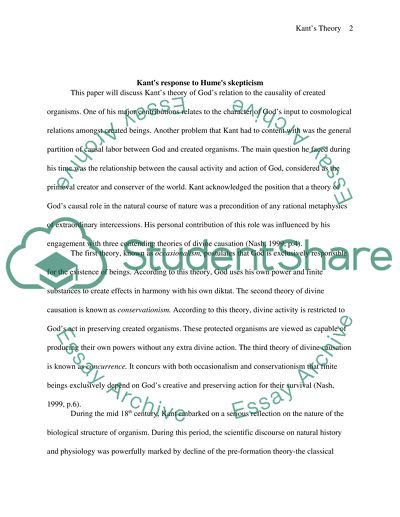Kant's Response to Hume's Skepticism Essay Example | Topics and Well Written Essays - 1250 words. Retrieved from https://studentshare.org/philosophy/1433934-using
Kant's Response to Hume'S Skepticism Essay Example | Topics and Well Written Essays - 1250 Words. https://studentshare.org/philosophy/1433934-using.


